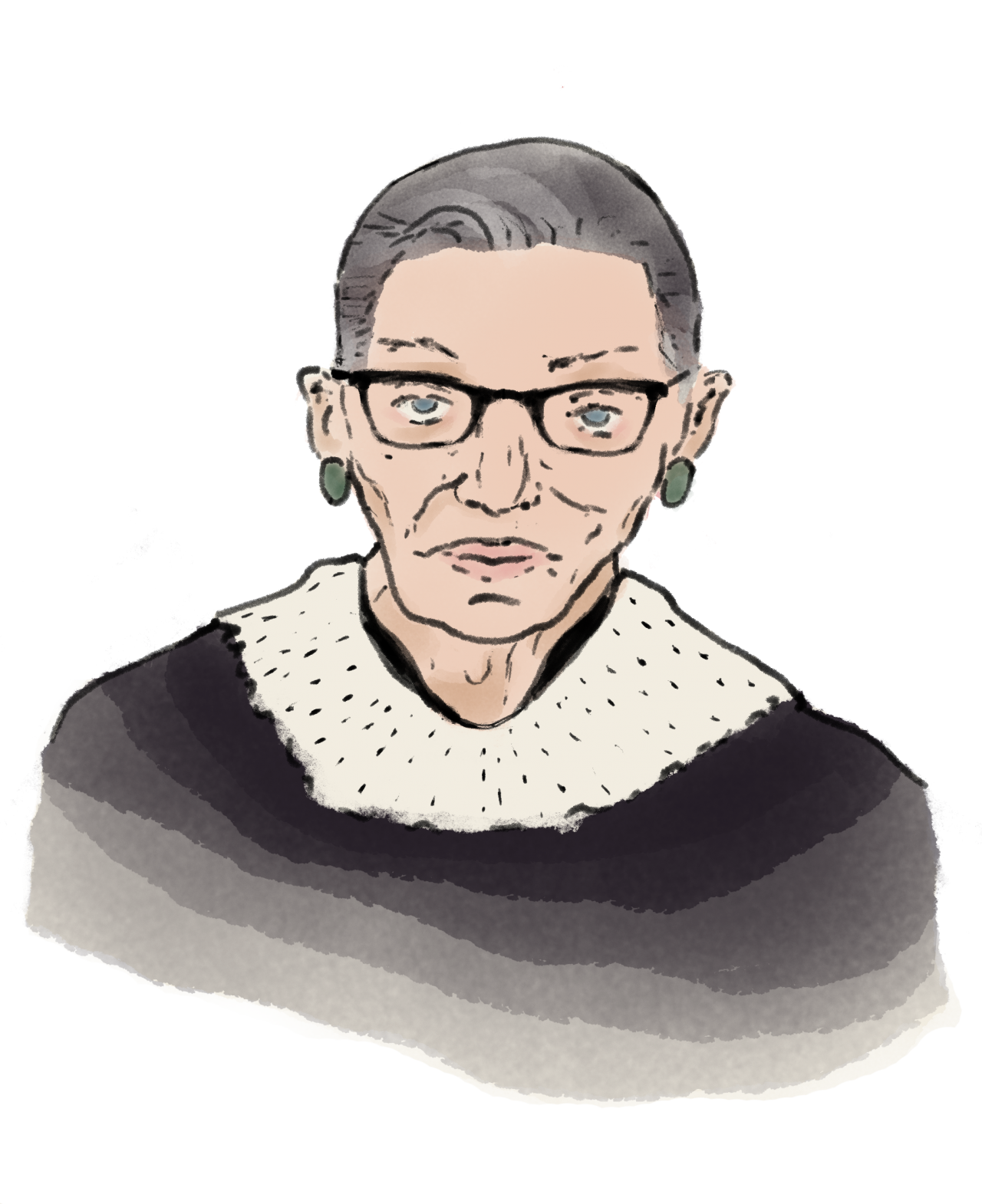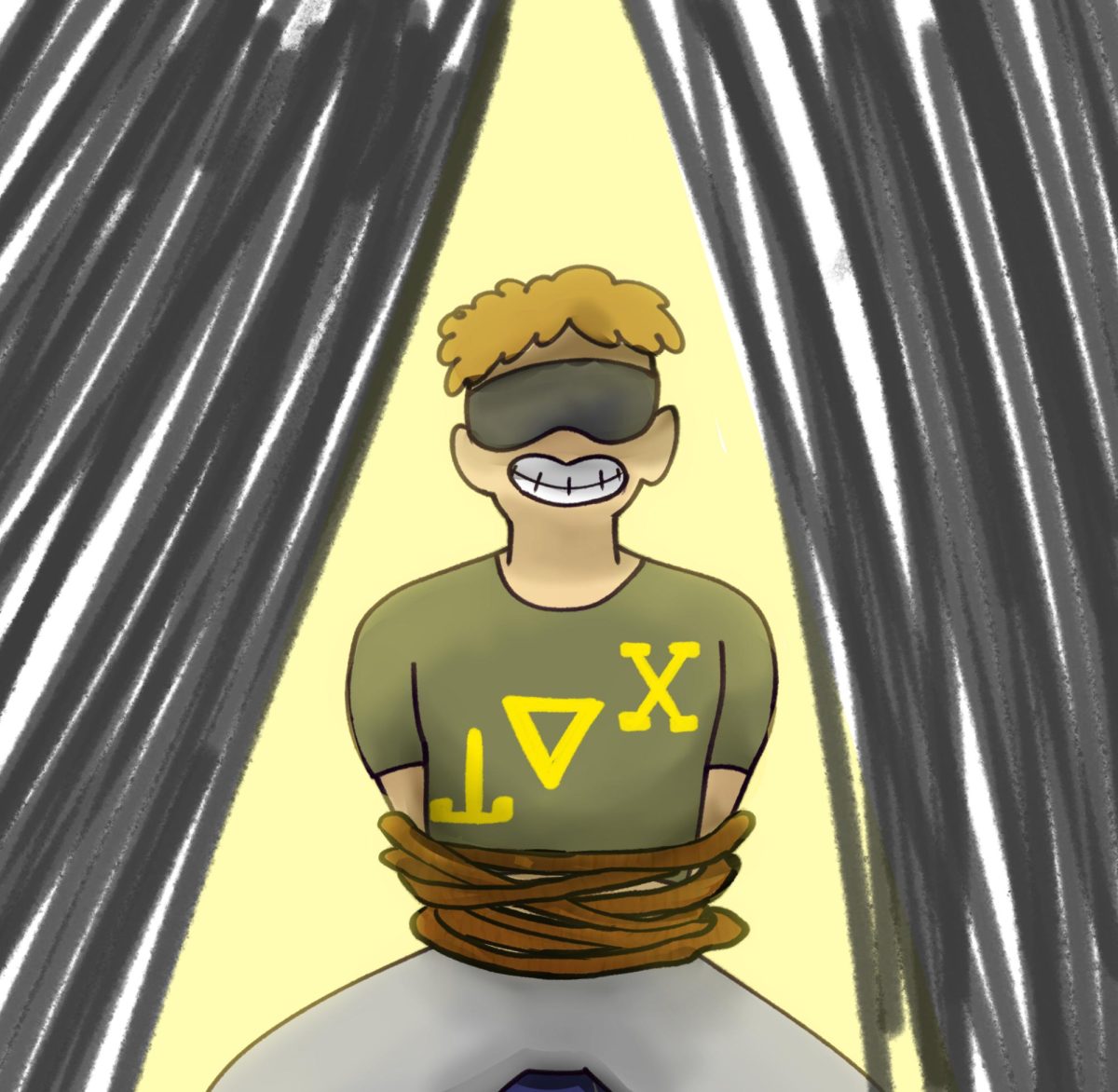Coauthored by Kathryn Vomero Santos
illustration by Kate Nuelle
There have been many moments in 2020 that have hit like a punch in the gut. In just the past few weeks, we have heard reports of forced hysterectomies in ICE detention centers, witnessed the failure of a grand jury in Louisville to charge the killers of Breonna Taylor with anything more than recklessly shooting some drywall, and mourned the death of Supreme Court Justice Ruth Bader Ginsburg. Meanwhile, President Trump has announced a series of Executive Orders that describe the study of systemic racism, sexism, colonialism, and oppression as anti-patriotic. The contrast between these executive actions and our lived realities and traumas illustrates the essential nature of studying the very topics that the President seeks to discredit in the name of unity and patriotism.
The interdisciplinary program in Women’s and Gender Studies at Trinity engages in exactly the kind of inquiry about historical and ongoing forms of oppression that President Trump attacks in his executive order. We unequivocally refute the President’s claims and embrace knowledge as a site of liberation and equity.
Feminism has, at times, been a site of exclusion and division. For many years and in many ways, dominant understandings of the women’s rights movement focused on the lived experiences and struggles of white women, particularly white women of a certain socio-economic class. While these issues and failures are certainly not yet resolved, the current moment demands that we imagine feminism in the most expansive, inclusive, and radical ways possible.
The conversations about Justice Ginsburg’s legacy serve as a model for an intersectional, inclusive, and critical approach to feminism that we hope to cultivate in our interdisciplinary program. As several people have noted, Ginsburg was incredibly creative in her approach to demonstrating the harm caused by laws that made distinctions on the basis of gender. Rather than arguing on behalf of women who faced discrimination, she took on cases where she could clearly show that men were being denied equal treatment under the law. In doing so, she not only successfully changed such laws but also highlighted the fundamental animating principle of feminism: the belief in the social, political, and economic equality of all genders.
Although Ginsburg’s record was complicated when it came to issues of race and criminal justice in this country, she clearly understood that gender was not the only axis of inequality and made several important decisions that reflect her intersectional approach to feminism. Even in her early cases for the ACLU, she cited Black lawyers, advocated for the reproductive rights of women of color, and pointed out crucial instances where laws that discriminated against women were also used to discriminate on the basis of race. She opposed changes to the Voting Rights Act, which removed oversight from states with a history of voter suppression. She was a consistent supporter of LGBTQ rights, most recently in the Bostock v. Clayton County ruling, which defined anti-LGBTQ discrimination as a form of sex discrimination.
Recently, in the Introduction to Gender Studies course —taught by Dr. Santos — students reflected on Justice Ginsberg’s impact on feminism and society more broadly. After watching a video about her long career and contributions to the fight for equity in this country, many students found themselves both moved by the magnitude of her legacy and wondering what they could do to carry it forward and to build upon it. After all, one of the first things they learned in this class is that the work of feminism is ongoing, and it requires a commitment to activism and action beyond the classroom.
As the November election rapidly approaches, it is increasingly clear that one of the most immediate ways to do the ongoing work of feminism is to vote. But voting is simply not enough in and of itself. It is incumbent upon all of us to commit to educating ourselves about how our government works — and, in many cases, does not work — and to sharing that information with others. In order to achieve the world envisioned by feminism as we define it, we must continue the work done by those who came before us and actively fight for an end to systemic oppression and for the liberation of all people.








